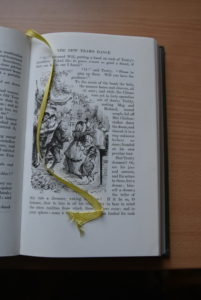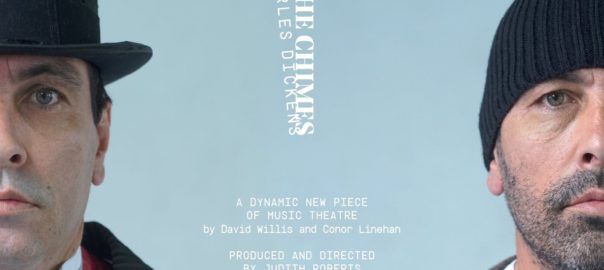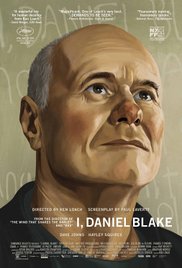Don’t miss ‘The Chimes’ in its London run from 19th – 30th December. This staging of Charles Dickens’ second ‘Christmas Book’ as musical theatre is strikingly confident in its mix of professional actors and ‘an ensemble of men and women who have been homeless and are re-building their lives’.
The high quality of the songs by Conor Linehan with musical direction by Cathal Synnott plus their excellent delivery by a well-drilled cast make this a real treat.

The script, while staying close to the original story, blends in contemporary resonances a-plenty.The lesson of Dickens’ evergreen ‘A Christmas Carol’ is that the essence of Christmas, applicable all year long, is sharing. ‘The Chimes’ foregrounds trust — the mutual trust that alone will guarantee a humane society.
Trust obliges vulnerability. If you never want to be hurt, trust no one. That’s the position from which Dickens famously dislodges Scrooge. Actors, launched into a production, exemplify trust; especially so when the skilled must have faith in the novice. This embodiment of the piece’s theme is an important part of its overall effect.
Capitalism is personified here both amusingly and terrifyingly in a range of characters aristocratic, municipal, statistical and commercial. Capitalism must be sure that it is not taken advantage of so blame, censure and the assumption of fecklessness trump compassion, leniency and mercy.
But whereas in ‘A Christmas Carol’ it is the capitalist, Ebenezer Scrooge who has to be humanised by the Spirits of Christmas Past, Present and Yet To Come, in this story written a year later it is one of the poorest of the poor whom Dickens chastens by visions. Scrooge had quite a tally of sins to atone for but poor Trotty Veck is guilty of no more than a brief lapse of trust in providence and in himself.
This seems harsh and by the story’s end the bastions of capitalism are unshaken. Or rather, they appear to be unchanged. It’s a charge levelled against art that it does not actually change the world. I was asked in a recent radio film review programme whether a hard-hitting piece of art from our own time had actually made a difference.
The work in question was Ken Loach’s film, ‘I, Daniel Blake’. In this, a decent, impoverished man is abused by the social care system while a young woman he has himself cared for is driven to prostitution — plot lines shared by ‘The Chimes’.
Art ‘works’ through its impact on those intangible but crucial institutions the ‘heart’, the conscience, the imagination. It does not itself construct a hospital or a humane benefits system, it puts into our own tangible hands a further set of intangibles: inspiration and empathy. These are the invisible engines of social change.
On November 4th 1844 Charles Dickens had a streaming head-cold so severe he could hardly see the page but he finished ‘The Chimes’. He felt he had written ‘a decided Staggerer’. The book caused a furore. Three stage productions launched immediately and it was a book his contemporaries wept over, seeing its critique of the hypocrisy of the time as a true reflection of the ills of their age. Modern readers are likely to find the humble characters less convincing than the grasping toffs but ‘The Chimes’ was part of the sustained campaign that art wages against cant and prejudice.
Though much has improved in the 173 years since then problems caused by our lack of mutual trust remain. As I write, the local ‘Western Mail’ carries an appeal from the charity Safer Wales about prostitution. Readers are invited to volunteer for a street project that aims to break a vicious cycle of coercion and hopelessness. They are also asked to reconsider their perceptions of sex workers — the very thing that Dickens does in ‘The Chimes’.

The same paper carries news of a £10 million funding package, over 10 years, in addition to £20 million already pledged by the Welsh Government, in a bid to end youth homelessness.
I will retain from this production of ‘The Chimes’ the message that it’s less important to be sure who deserves and who doesn’t deserve help than to be organised to give it and accept the risk getting it wrong; what prevents genuine social change is treating human relationships like financial investments which must yield a return or be voided.
Director, Judith Roberts has been brave and she has been successful, just like her cast, who have given David Willis’ fluent script a particularly poignant impact.
The non-professional cast is refreshed for the London run at St. John’s Waterloo. The biogs of the entire cast are in the programme. I recommend not reading them till after the performance so that every actor is accepted as just that rather than as ‘formerly homeless’ or ‘professional’. You’ll be impressed.

‘The Chimes’ is less a Christmas story than one of the New Year with all that that implies of change and hope.
Besides, you’ll meet the unforgettably-named Mrs Chickenstalker.
Chapter Arts Centre, Cardiff partners the production with the support of The Wallich, The Huggard and The Passage, organisations which support the homeless.

